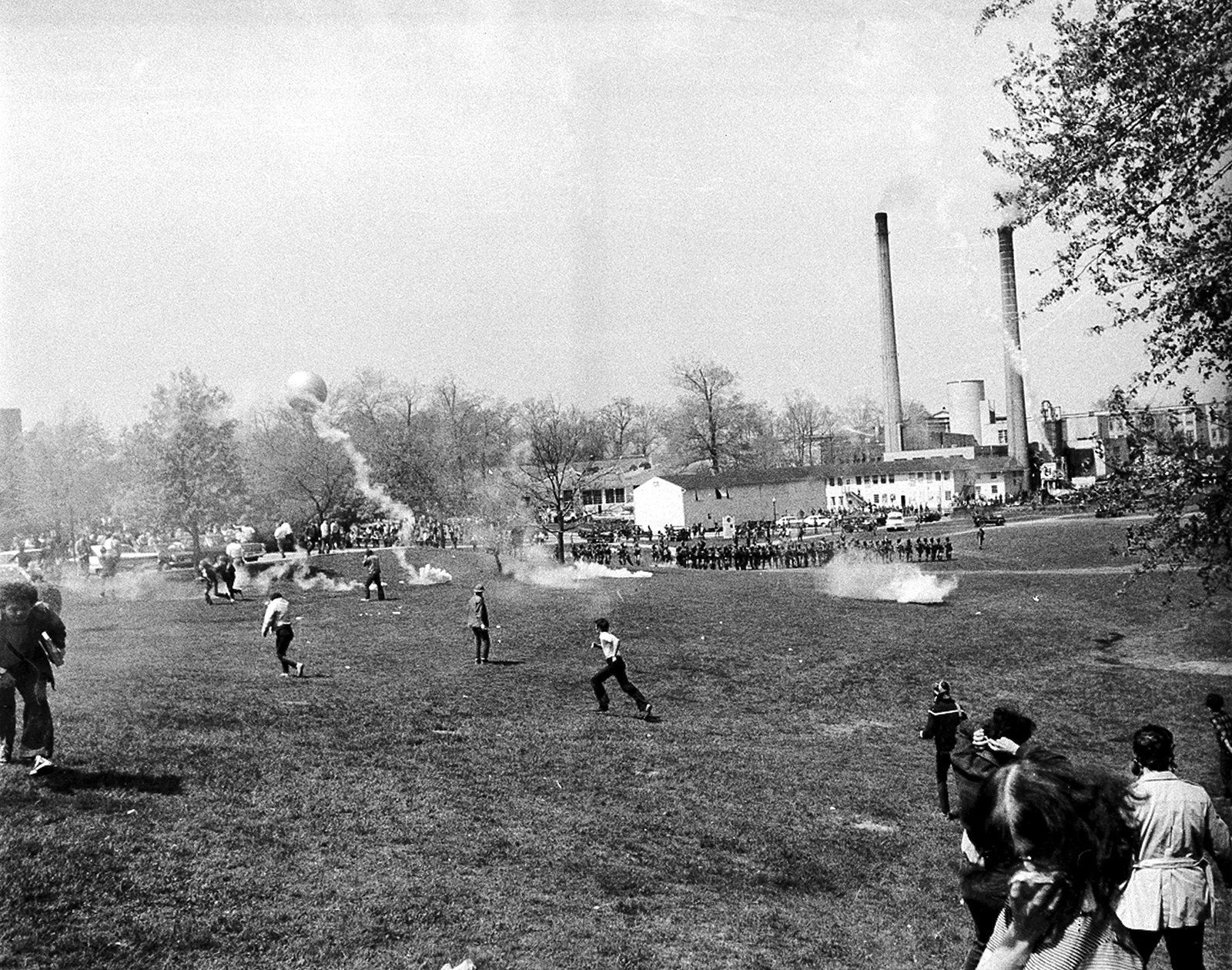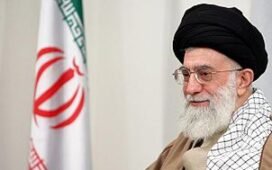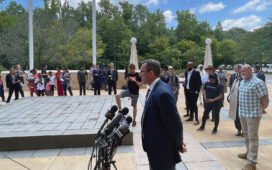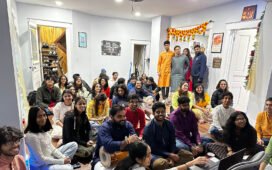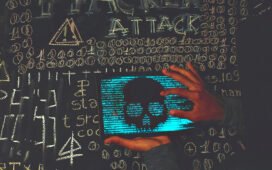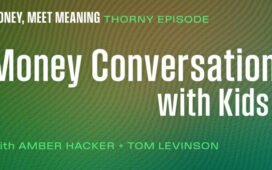(RNS) — “There’s no place in this world where I’ll belong when I’m gone,” sang the late folk singer Phil Ochs in “When I’m Gone.”
I found myself singing it as I walked through the Woody Guthrie Center in Tulsa, and its neighbor, the Bob Dylan Center. Both are worth a trip to Oklahoma.
The Guthrie Center houses archives on the life and legacy of Ochs, who had a formative influence on my life. He died far too young and far too tragically.
As I sang “When I’m Gone” in Tulsa, I remembered the many times I sang it at college coffeehouses. But I also remembered singing it at a religious service — my confirmation ceremony 55 years ago on Shavuot in May 1970.
Why was that song part of the service, at which we confirmands — about 100 kids — wore black arm bands?
Our confirmation ceremony was two weeks after members of the Ohio National Guard shot and killed four unarmed students at Kent State University on May 4, 1970. The students were protesting the U.S. invasion of Cambodia during the Vietnam War. Nine other students were injured, and one was paralyzed.
We felt the horror and loss most acutely. Our synagogue was in Wantagh, New York, and many of us were from Bethpage and Plainview — the hometown of Jeffrey Miller, one of the slain students. He was only four years older than we were, and many of us knew his family.
Miller, Allison Krause, Sandra Lee Scheuer and William Schroeder were the victims. They were 19 and 20 years old. Three of the four were Jewish.
On the day before she was killed, Krause put a flower in a National Guardsman’s rifle, saying, “flowers are better than bullets.”
The Russian poet Yevgeny Yevtushenko commemorated her death:
Of course:
Bullets don’t like people
who love flowers,
They’re jealous ladies, bullets,
short on kindness.
Allison Krause, 19 years old,
you’re dead
for loving flowers.When, thin and open as the pulse
of conscience,
you put a flower in a rifle’s mouth
and said,
“Flowers are better than bullets,”
that
was pure hope speaking.Give no flowers to a state
that outlaws truth;
such states reciprocate
with cynical, cruel gifts,
and your gift, Allison Krause,
was the bullet
that blasted the flower…
Had those four students lived, they would be 75 years old now — maybe grandparents, perhaps even great-grandparents.
Two were killed because they were in the wrong place at the wrong time — they weren’t protesting.
And the Kent State students were not the only students to be killed on an American college campus in May 1970. Eleven days later at Jackson State College (now University) in Jackson, Mississippi, police confronted a group of Black students protesting. They opened fire and killed two: Phillip Lafayette Gibbs, 21, a junior, and James Earl Green, 17, a high school senior. Twelve others were wounded.
President Richard Nixon’s President’s Commission on Campus Unrest, which studied the deadly campus incidents, stated of Jackson State: “… The 28-second fusillade from police officers was an unreasonable, unjustified overreaction. … A broad barrage of gunfire in response to reported and unconfirmed sniper fire is never warranted.” The college named the area of the shootings Gibbs-Green Plaza.
We remember Kent State. We do not remember Jackson State.
Now, 55 years later, I observe May 4 as the kaddish of American innocence. That day, we realized there were no guarantees of safety. We learned academic sanctuaries of colleges could not keep us safe. Over the decades, we learned public schools could not keep us safe. Neither could religious sanctuaries provide us with metaphoric bulletproof vests.
Something else looms large in our hearts and souls. The other day, I was talking with a friend about the current anti-Israel and antisemitic unrest happening on many college campuses.
He said to me: “Why don’t they just send the National Guard in to quiet it all down?”
I emitted an audible gasp. My friend is about six years younger than I am, and that age gap turned out to be culturally significant.
I said to him: “I believe that college administrators must step up and address these issues in a deep and systemic way. But, even beyond that, there is a two-word reason why the National Guard should never enter a college campus.”
He asked me: “What are those two words?”
My reply: “Kent State.”
He looked at me quizzically. He had never heard, or perhaps forgotten, the story of that horrific May day in 1970.
That should be our fear: that the National Guard might once again use arms against student protesters — however much we might dislike and even revile what the students are saying.
On this day, I remember the fear and anger that gripped us and our parents. I remember my parents’ friends saying: “This is what happens. You send your kids to college, and nothing ever prepares you for this.” I remember my friends and me as high school sophomores wondering aloud: “Could that ever happen again? Could this country do that again?”
I tremble to imagine the answer. Which brings me back to the poem by Yevtushenko:
Give no flowers to a state
that outlaws truth;
such states reciprocate
with cynical, cruel gifts …
The Russian poet was eerily prophetic. Let there be no flowers for a government that outlaws truth; for a government that reciprocates with cynical, cruel gifts; for a government in the process of making falsehood, cynicism and cruelty into national policy.
Where are the descendants of Allison Krause, Jeffrey Miller, Sandra Lee Scheuer and William Schroeder today? When will students on our college campuses turn their vitriol toward what is happening in our country?
Let those hoped-for protests be the living kaddish for them, and for Phillip Lafayette Gibbs and James Earl Green.

